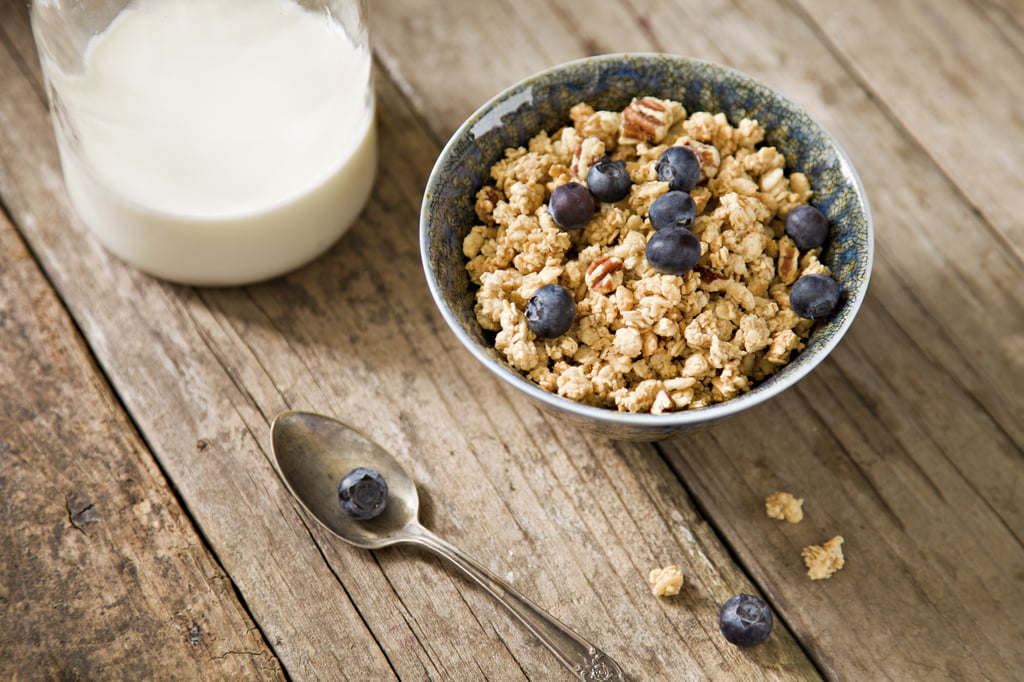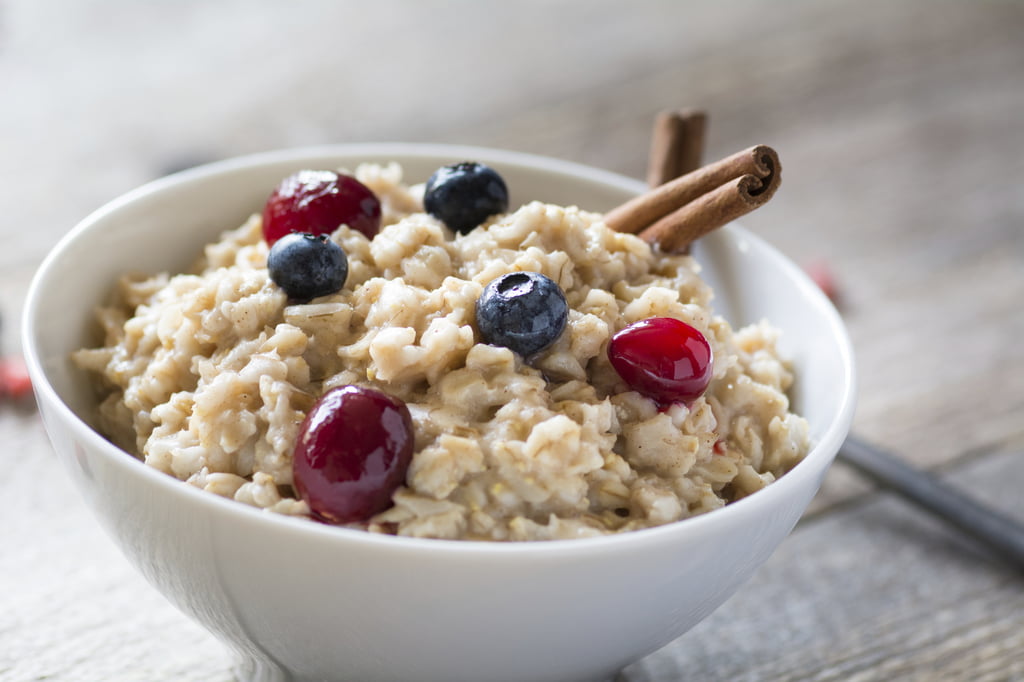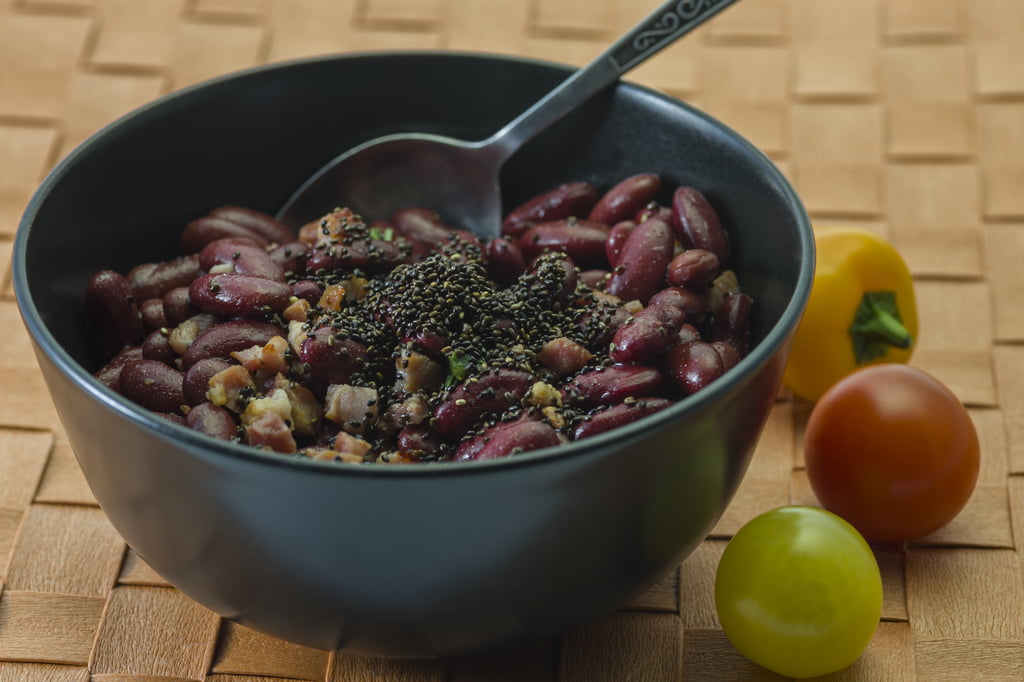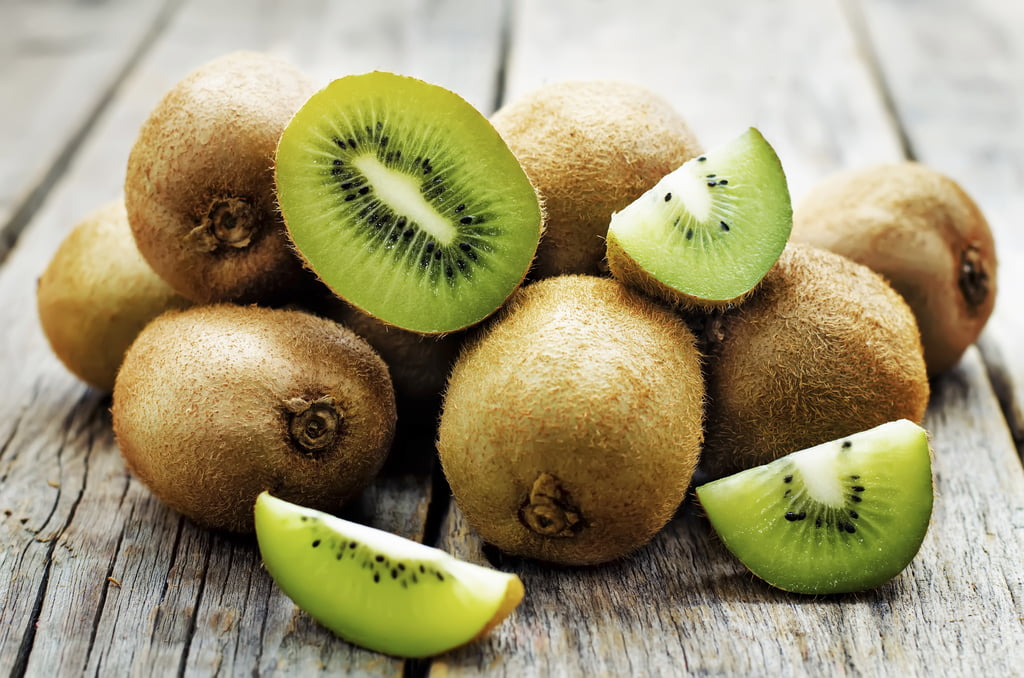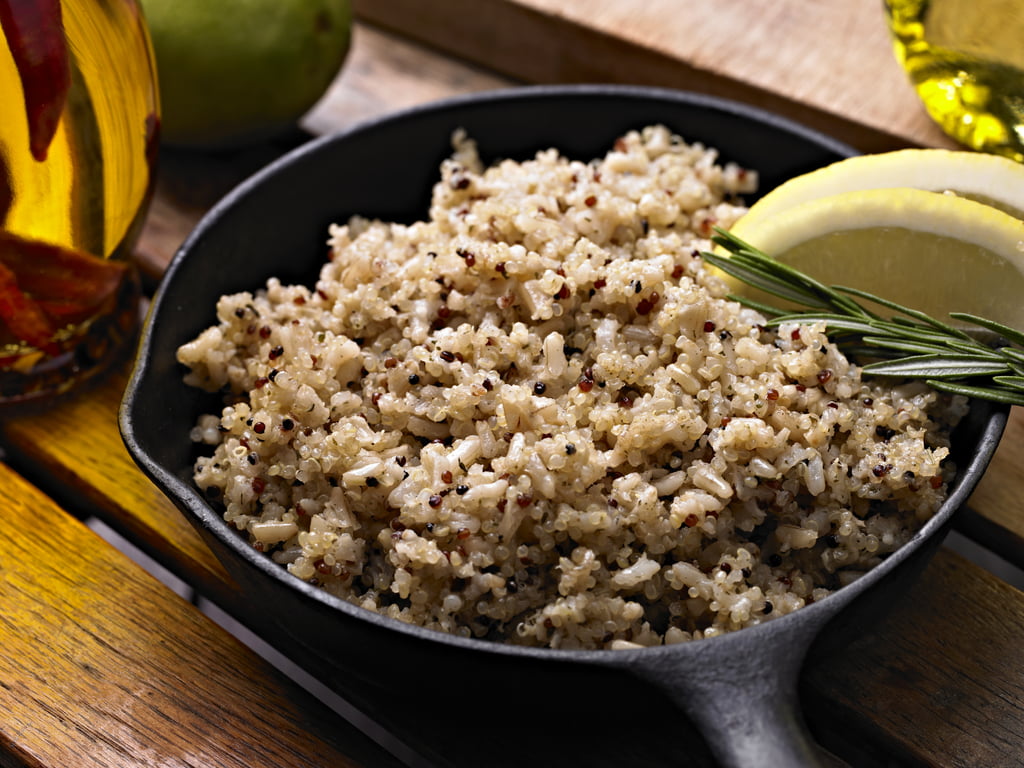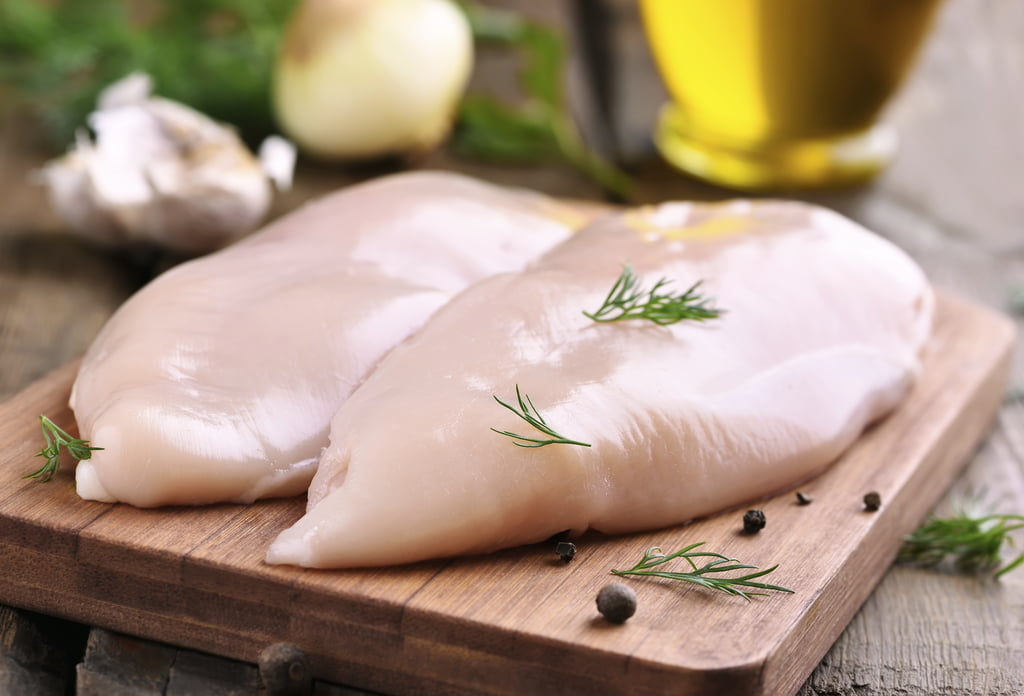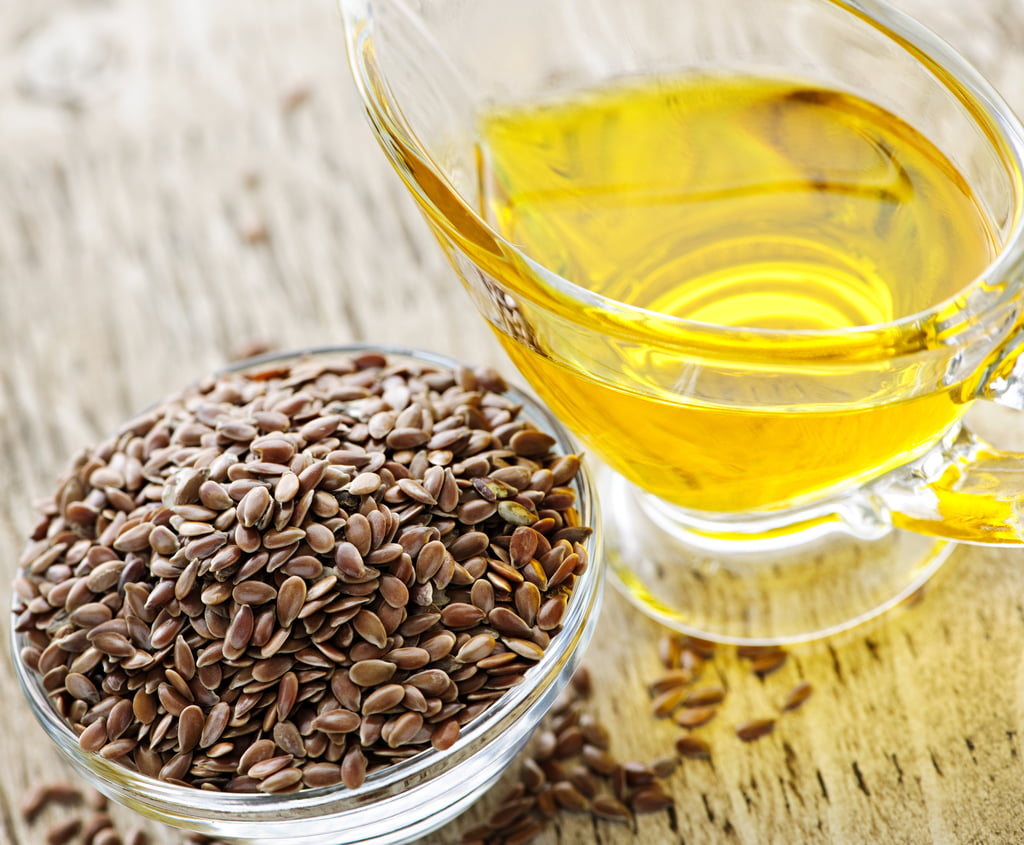SingaporeMotherhood | Preschooler & Up
September 2016
Top 20 Brain Foods for Kids to Stay Sharp for Their Exams
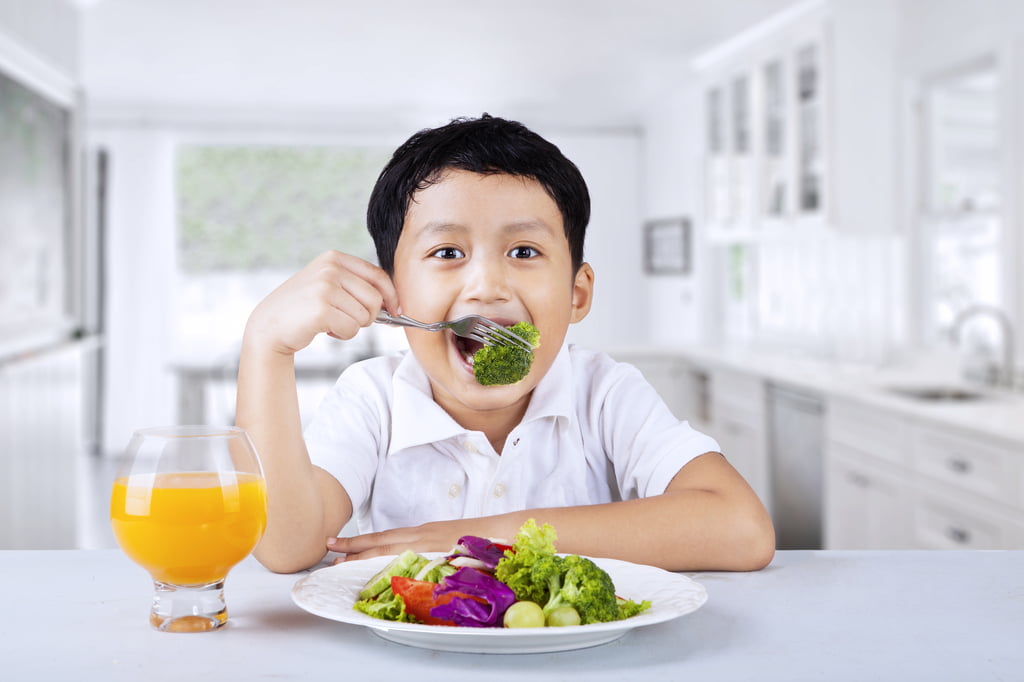
Did you know that six out of 10 children in Singapore are not eating any whole grains? These findings from the Singrain Study, a nationwide dietary survey of kids in Singapore aged six to 12. They come as a surprise since breakfast cereals loaded with whole grains are readily available at supermarkets here.
Whole grains are healthy carbohydrates which supply sugar in the form of glucose, which is crucial for many brain functions. So yes, that makes whole grains brain foods, and one which you should add to your child’s diet to encourage optimal mental performance. What other foods can help your child with brain power, especially during this exam season? Louis Yap, a dietitian at Parkway East Hospital, tells us.
1. Salmon
Salmon is rich in omega-3 fatty acids such as EPA and DHA – polyunsaturated fats that play a big role in brain functions and development. However, there have been recent concerns that high intake of deep sea fishes like mackerel, tuna, and cod may increase the mercury intake of an individual. Limit your child’s intake of salmon to one serving (90g) per week.
2. Eggs
Eggs are loaded with vitamin E, polyunsaturated fats, and choline. The last is vital for the creation of memory stem cells which form deep within our brains. The more cells we have, the better our memory! So start getting junior to enjoy eggs n all its many variations: hard-boiled, half-boiled, scrambled, poached, sunny side up, and more!
3. Peanut butter

Peanut butter is another great source of omega-3 fatty acids — the same fats you can find in fish. So if your child hates anything that smells fishy, peanut butter is a fantastic substitute! This wonder food also contains various vitamins and minerals such as thiamin, riboflavin, niacin, vitamin B6, folate, vitamin E, calcium, iron, magnesium, phosphorous, potassium, sodium and zinc. These are all essential for brain growth!
4. Whole grains
Whole grains are the sum of three parts of a grain: the bran, endosperm and germ. Together, they provide dietary fibre, B vitamins, vitamin E, phytochemicals, antioxidants and protein. Whole grains are the healthier choice of carbohydrates for children and adults alike. Depending on their age, children should be consuming two to six servings of whole grains daily. Breakfast cereals are a child-friendly source of whole grains!
5. Oatmeal
Oatmeal is chock full of dietary fibre. It digests slowly, providing kids with a steady stream of energy throughout their school day. This nutritious food also supplies protein to build strong muscles. If you have been serving junior old-fashioned slow-cooked oatmeal, throw in raisins, dried apricots, or cranberries to add a little flavour!
6. Milk
Milk is a rich source of protein. It also contains vitamin A, which supports growth and brain development. This brain food is an important source of nutrition, especially for younger children aged between six and 24 months old. This group of children should be drinking three glasses of milk each day.
7. Yoghurt
Dairy products are an excellent source of protein, which is the building block for the tissues in our body. Without protein, we will not be able to build and repair our cells. We think yoghurt is extremely child-friendly as you can serve it as a palatable dessert, with bite-sized pieces of fruits thrown in!
8. Avocado
Avocado is a fruit source of omega-3 fatty acids. Since avocados have such a mild, pleasing taste and creamy texture, it is pretty easy to convince little ones to eat them. Try combining avocado with other foods your children already enjoy. How about mixing some mashed avocado into the mayonnaise you spread on their sandwiches? Or try mixing it into yogurt to create a delectable dip!
9. Blueberries
Blueberries are rich in antioxidants and phytochemicals. Mr Yap explains that some studies have reported improvement in cognitive and brain functioning associated with the intake of blueberries. Include fruits of different colours in your child’s daily diet. Do look up the recommended serving size of fruits for your child as they will differ with various age groups.
10. Kidney beans
Kidney beans by themselves form an important nutrient group for children who are vegetarians. In addition to providing slow burning complex carbohydrates, kidney beans help to replenish iron stores. Iron is an essential element for blood production. In addition, a lack of iron can affect mental functioning.
11. Broccoli
Broccoli is rich in vitamins, minerals and phytochemicals (including those with antioxidant properties). Include this and other green vegetables in your child’s diet, but in age-appropriate amounts. “An overload of vegetables may lead to early satiety, making him feel too full to eat other nutrient-rich foods,” explains Mr Yap.
12. Kiwi
Kiwis have loads of vitamin C, which the body needs for the growth and repair of tissues, including in the brain. It is also one of many antioxidant nutrients that block some of the damage caused by free radicals in the body. Did you know that kiwis contain almost twice the vitamin C found in oranges?
13. Brown rice
Brown rice is a low-glycemic complex carbohydrate that is great for children who are sensitive to gluten. It helps in accelerating the metabolism in the brain attributing to the presence of vitamin B and essential minerals such as manganese. The magnesium present in it also balances the activity of calcium in the body and helps in the regulation of nerves and muscle tone.
14. Spinach
Spinach ranks high on the list of vegetables packed with potassium. Why do kids (and adults) need potassium? When the brain sends out signals to other parts of our body, the successful transmission of the message relies on the balance of sodium and potassium in the body. A lack of potassium can thus affect brain function.
15. Almonds
Nuts contain healthy fats in the form of monounsaturated fats. Children can have a small handful (about 20g) of nuts on a daily basis. Nuts can be hard to bite. Moreover, their size may lead to choking. Hence parents must supervise when young ones are eating nuts. Alternatively, the nuts can be ground into powder to use as an ingredient in muffins or pancakes.
16. Sunflower seeds
Seeds are rich in vitamin E, an antioxidant nutrient. Antioxidants interact with and neutralise free radicals produced in the body, thus preventing them from causing damage to body cells, which include brain cells. Because of their small size, they are best given to children above the age of six, as a healthy snack.
17. Lean meats
Lean meats like chicken breast are a great source of protein and contain fewer calories than non-lean meats. Poultry is a good source of selenium, vitamins B3 and B6, and choline. Selenium helps to boost the immune system while vitamins B3 and B6 aid the body in converting carbohydrate into glucose. Children should aim to have two to three servings (one serving = 90g) of meat or other alternatives a day, depending on their age.
18. Flaxseed oil
Like salmon, flaxseed oil has heart-friendly omega-3 fatty acids. However, it does not carry the risk of ingesting mercury unlike salmon. Do note that as it is completely made up of fats, excessive intake of flaxseed oil may lead to obesity, especially if your child is inactive. Limit to about one to two tablespoons per day. You can drizzle it sparingly on salads, or use it to lightly stir-fry dishes.
19. Tomatoes
Tomatoes are a great source of antioxidants which protect brain cells from oxidation and free radical damage. They also help to slow down brain aging and prevent brain disease while promoting the growth of healthy brain cells. We love how we can use this versatile ingredient in soups, sandwiches, stir-fry dishes, pasta, and even salsa dips!
20. Sweet potatoes
Vegetables with rich, deep colours are an excellent source of antioxidants to keep brain cells healthy. Some vegetables to sneak into your child’s diet are sweet potatoes, pumpkins, or carrots. It’s easy to hide them in spaghetti sauces or soups. Or how about replacing potato or corn chips in your child’s lunch with baked sweet potato wedges? Nutritious and yummy!
Brain foods for brainy kids?
Obviously, food alone is not a magic key to brain power. However taking the right kind — like these brain foods — can help encourage better mind and body growth and development in your child.
For more information on the recommended serving sizes of foods, consult the My Healthy Plate guide by the Health Promotion Board.
All content from this article, including images, cannot be reproduced without credits or written permission from SingaporeMotherhood.
Follow us on Facebook, Instagram, and Telegram for the latest article and promotion updates.






